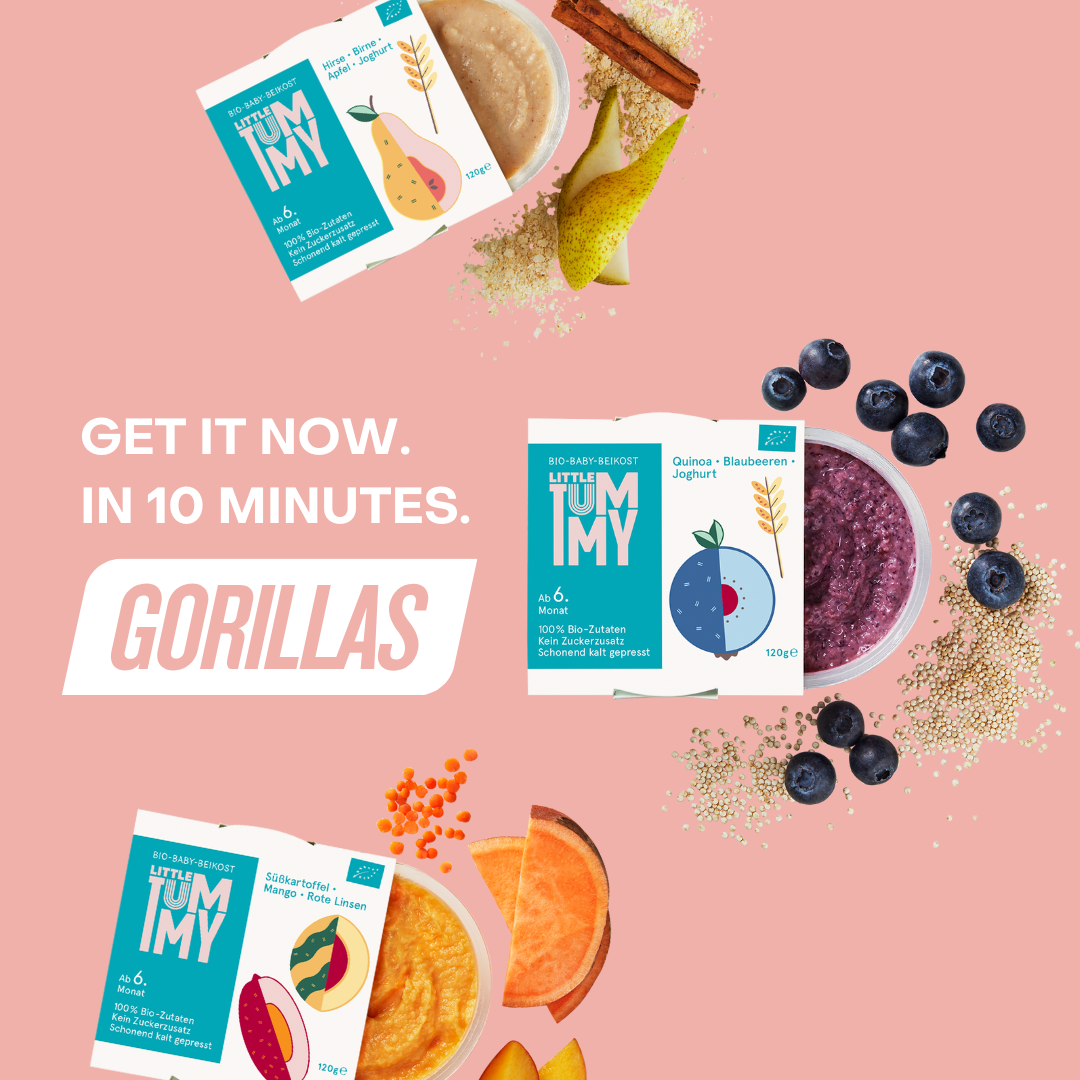
Little Tummy bei Gorillas in Deutschland erhältlich
Tolle Neuigkeiten für unsere Eltern in Deutschland: Du kannst Little Tummys frischen Bio-Babybrei jetzt bei Gorillas bestellen!
Why should babies avoid added salt?
When babies are born, their kidneys are still somewhat immature. Once they start feeding, their kidneys get used to the higher amounts of fluid and electrolytes (salt) they digest. This process takes about 13 months and the kidneys slowly become used to increased amounts of salt.
Another concern is that getting babies used to salty foods from early on will have an impact on food preferences later in life. A low-salt diet has been linked to a lower risk of high blood pressure and heart disease.
How much salt can my baby have every day?
Babies under the age of 12 months should consume less than 1g of salt per day. The back of pack instructions of packaged foods usually show you the amount of salt they contain as sodium. Multiplying the amount of sodium by 2.5 will give you the amount of salt per 100g. In other words, try to avoid giving your little one more than 0.4g of sodium per day. This roughly equals one pinch of salt.
Which foods contain a lot of salt?
Most food groups contain small amounts of salt but there are some hidden sources of salt, which might not seem obvious:
At Little Tummy, we never add salt to our meals and make sure to use ingredients with a low natural salt content.
✕